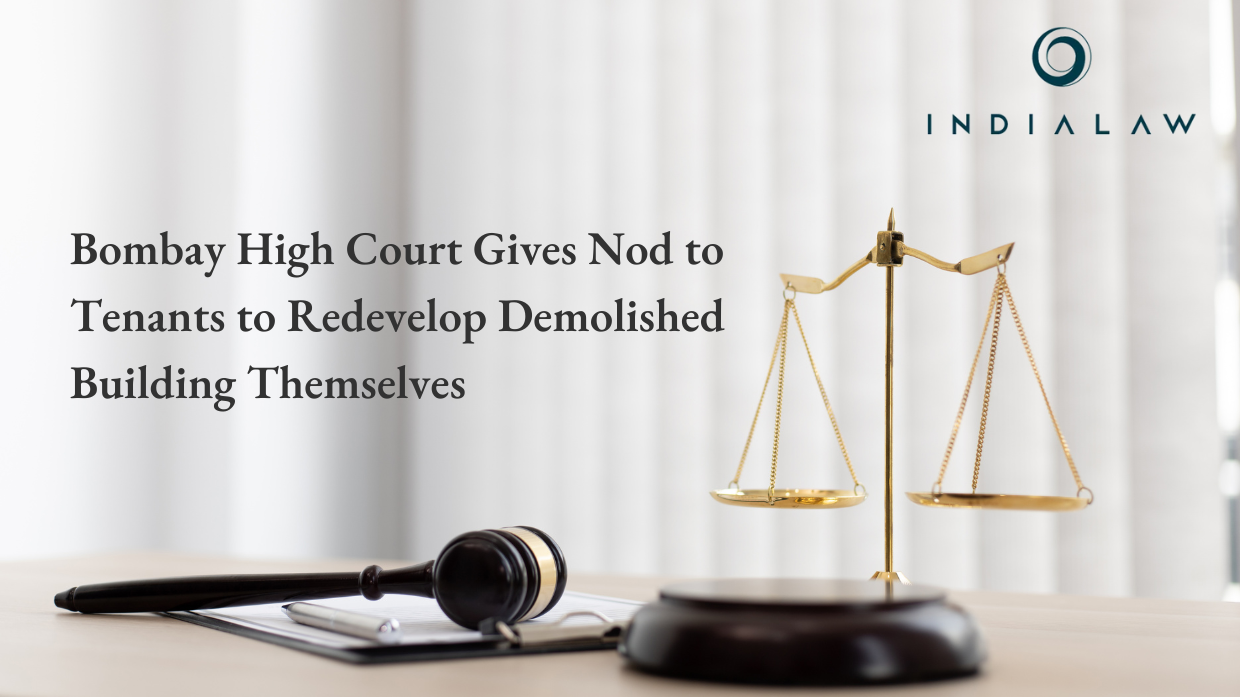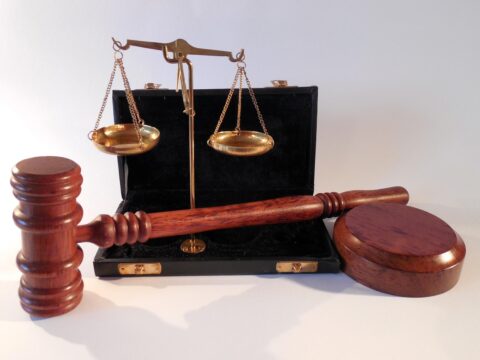Bombay High Court Gives Nod to Tenants to Redevelop Demolished Building Themselves

The High Court of Bombay (“HC”) in a recent judgment[i] permitted the tenants to reconstruct their demolished premises u/s 499(6) of the Mumbai Municipal Corporation Act (“MMC Act”). It further directed to recover costs from the landlords in the absence of a redevelopment plan within a year of demolition.
The Division Bench of the HC[ii] stated that the tenants are not entitled to redevelop the premises and then occupy flats on ownership basis. It implies that tenants cannot occupy premises as owner but would remain tenant after reconstruction. It was stated by the HC that “Section 499(6) preserves the rights of the owners of the property and keeps the tenants as tenants. This is important because in the course of redevelopment, particularly under some provisions of the DCPR 2034 tenancies may be converted optionally to ownership. The statute does not give the tenants rights to convert tenancy into ownership.”
The HC added that “The [tenants] association must make its own arrangements for financing the reconstruction. We have only affirmed their statutory right to reconstruction and the MCGM (BMC)’s obligation to permit it without requiring the prior consent of [the landlord].”
The HC dismissed the contentions of the landlords wherein it was alleged that a landlord is not obligated to reconstruct or redevelop the demolished structure and the MCGM holds no power or authority compelling them or permitting the tenant to reconstruct a premises on default/failure by the property owners.
It was held by the HC that the buildings are demolished due to their poor conditions that are affecting the tenants. Pulling down the BMC for being a by-stander, the HC stated that it is civic body’s duty to demand plans for reconstruction of the premises and to take adequate/ necessary steps against the landlord under the MMC Act.
Approximately 104 tenants became homeless after their tenements were demolished. In 2014, the building was declared dilapidated. The tenants had to vacate the premises in July 2019, and they have been shifting to places since then.
An association was formed by the tenants, namely Chandralok People Welfare Association. They approached the Court against the owner of the building, civic body and landowners.
The tenants approached the HC to seek the writ of mandamus and order for the BMC directing the landlords to comply with the provisions of Section 489 r.w. Section 354 and Section 499, of the MMC Act, by reconstructing/redeveloping the building on the 2702 sq meters of land.
The tenants sought permission from the Court to reconstruct the building by appointing a developer and providing ownership rights to them.
It was contented by the tenants that no response was received by the BMC in spite of invocation of Section 499 of the MMC Act. The premises were demolished despite the order of the City Civil Court to maintain status quo, the tenants lost their right after demolition of the building.
The HC opined that the landlord holds the right to enjoy the premises he owns however, these rights come with obligations where tenants are involved u/s 499 (3) and (6) of the MMC Act.
While dismissing the contentions of the BMC wherein it alleged that it does not hold the power to compel or allow reconstruction at the instance of tenants affected by the bringing down of a tenanted building.
The HC added that “But we see no reason why the MCGM should remain a silent bystander for years and years together when it finds that there is a building that has been brought down, tenants have been evicted and there is no proposal before it for either reconstruction or redevelopment at the instance of the property owner.” The MCGM can demand from the landlord that the reconstruction must be done within a given time frame and if not, then steps will be taken under the MMC Act.
The HC permitted the association to submit plans to redevelop the premises and directed the BMC to consider and process it within a period of six weeks without the landlords’ consent.
[i] Chandralok People Welfare Association vs State of Maharashtra
[ii] Justice Gautam Patel and Justice Kamal Khata
By entering the email address you agree to our Privacy Policy.



